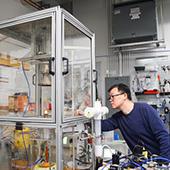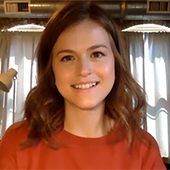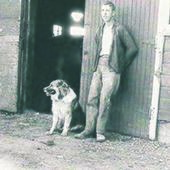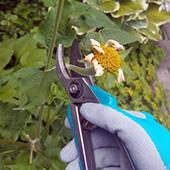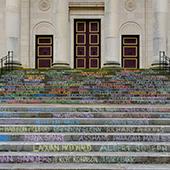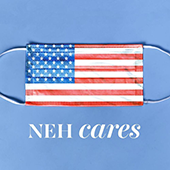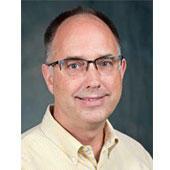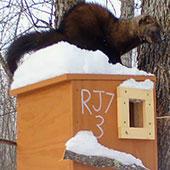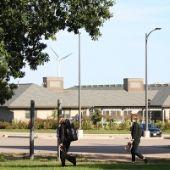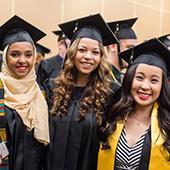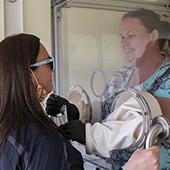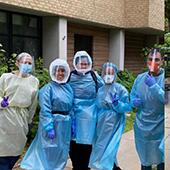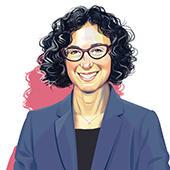- Board of Regents July meeting highlights.
- Features: Propelling the emerging economy; Curbing air pollution with purification towers; Students create video series to help parents prepare for having a baby.
- People: The National Institutes on Drug Abuse has awarded the U of M $9.9 million to establish the Center for Neural Circuits in Addiction; and more.
Board of Regents July meeting highlights
During its July meeting, the Board of Regents discussed what specific University policies and processes may need to change in light of new federal Title IX regulations, including processes for investigating and adjudicating sexual misconduct cases, the standard of evidence used in these cases, the role of advisors, the composition of hearing panels, and how decisions are appealed. Regents also approved a one-time employee retirement incentive offer program and heard the annual report of the University of Minnesota Alumni Association. See the news release for more details.
Propelling the emerging economy
The term “emerging” or “new” economy developed in the late 1990s, primarily in response to the tremendous effect of technology on businesses and the marketplace. From Uber to Tesla, from big data to CBD, Minnesota Law alumni are creating the future of work and leisure.
Curbing air pollution with purification towers
The air in Delhi, India, is thick with smog, ridden with fine particles of sulfates, nitrates, and carbon that millions of residents inhale every day. Imagine a nearly 60-foot-tall tower, equipped with a state-of-the-art filtration system, sucking in these particles and pushing out clean, breathable air. It may sound like a pipe dream, but it will soon be a reality for Delhi citizens—thanks to College of Science and Engineering Regents Professor David Pui and his team in the Department of Mechanical Engineering.
Students create video series to help parents prepare for having a baby
As COVID-19 started its spread in Minnesota, nurse-midwife leaders from across the state started to discuss how care was changing. With the COVID-19 pandemic limiting clinical visits, expecting patients experienced even less time with their providers during wellness checks. In addition, in-person prenatal classes were suspended. Doctor of Nursing Practice students Naomi Lara, Shannon Weas, Bonnie Perrine, and Mandy Hoffman wrote the scripts for 60 educational videos for the series, Having A Baby: Prenatal and Newborn Care Education.
People
The National Institutes on Drug Abuse has awarded the University of Minnesota $9.9 million to establish the Center for Neural Circuits in Addiction; U of M researchers are part of a $20 million NSF grant for the Center for Sustainable Nanotechnology; the U of M Institute for Engineering in Medicine has named Rhonda Franklin and Chris Pennell as the inaugural recipients of the IEM Abbott Professorships in Innovative Education; Rachel Hardeman has been awarded the Blue Cross Professorship of Health and Racial Equity; the U of M has received a $1 million philanthropic investment from the Otto Bremer Trust to establish mobile healthcare services in communities that lack access to medical care; Damien Fair has been named as the Redleaf Endowed Director of the U of M’s Masonic Institute for the Developing Brain; Christine Arenson has been named co-director of the National Center for Interprofessional Practice and Education; Mary Benbenek has been selected as a Fellow of the American Association of Nurse Practitioners; Connie White Delaney and Karen Monsen will be inducted into the International Nurse Researcher Hall of Fame; U in the News features highlights of U faculty and staff cited in the media. People
Video event online support is now available
Video conferencing experts can facilitate a worry-free online experience before, during, and after your event, for a fee. This service is a replacement for Video Event Onsite Support, which will be unavailable fall semester. Get details and request Video Event Online Support.
Update G Suite apps before Aug. 12
Google recently announced that in an effort to improve performance and security for its products, G Suite mobile (Android and iOS) and desktop apps with versions older than December 2018 may stop working on Aug. 12. To ensure you don’t experience service disruptions, update your G Suite mobile and desktop apps to the latest versions.
Ultrasound may prove to be effective, noninvasive treatment for COVID-19
Ultrasound technology is best known for its medical imaging capabilities, but biomedical engineering researchers at the University of Minnesota, together with clinical colleagues from the University of Minnesota Medical School’s Division of Rheumatic and Autoimmune Diseases, are examining if ultrasound may be an effective treatment for COVID-19.
U of M trial shows hydroxychloroquine has no benefit over placebo for early treatment of mild COVID-19
University of Minnesota Medical School researchers recently published the results from the first randomized clinical trial testing hydroxychloroquine for the early treatment of mild COVID-19 among persons who are not hospitalized. The trial results determined that hydroxychloroquine did not decrease the severity of COVID-19 symptoms over 14 days any better than a placebo. A previously published U of M study determined that hydroxychloroquine was not able to prevent the development of COVID-19 any better than a placebo.
New CIDRAP report calls for a directed, unified approach to COVID-19 surveillance
Disease surveillance is the cornerstone of public health practice because it allows public health officials to identify opportunities for disease control and evaluate the impact of policies and interventions. According to a new report from the Center for Infectious Disease Research and Policy (CIDRAP), the lack of consistent methods and strategies for conducting COVID-19 surveillance across the country has hamstrung response efforts.
Acres for education
While growing up on his family’s Minnesota farm in the 1940s and ’50s, Arnold Sluis dreamed of going to college and seeing the world. But life had other plans. First, his eldest brother went into the service, then another went to college, keeping Sluis on the farm. Then he volunteered to join the Army. Finally, at age 41, Sluis began his college education, leading to a B.A. in 1974 from the U of M Twin Cities and a master’s in social work in 1976 at the U of M Duluth. After Sluis died in 2014, his wife, Jan Cameron, updated her estate plan to leave 160 acres of farmland to the U of M Foundation.
Dos and don’ts for hot weather gardening
Gardening and lawn care during hot and humid weather can be challenging for gardeners. Julie Weisenhorn, Extension horticulture educator, talks through some hot weather gardening tips in this Yard and Garden blog post.
U of M’s Minitex introduces a new learning platform for the youngest learners
PebbleGo—a new K-5 online learning platform available to all Minnesotans through eLibraryMN.org—is a flexible resource that supports all types of students and serves as an inclusive, open, and equitable gateway to reading and to the research process.
Grading student-writing workshops for TAs
In September 2020, the Writing Across the Curriculum program will offer two interactive webinars, each focused on commenting on and grading student writing. The first (Sept. 1, 1-4 p.m.) is offered to TAs who assist with faculty-directed courses; the second (Sept. 2, 1-4 p.m.) is offered to TAs who serve as graduate student instructors.
Capturing a shifting reality
University of Minnesota websites and digital media reflect who we are, what we do, and what we represent. Capturing these short-lived entities is the job of web archivists at the University, and since the advent of COVID-19, they’ve been particularly busy.
Bell Museum reopens
The Bell Museum will reopen to the general public on July 23. Days and hours of operation will be limited to 10 a.m.-4 p.m., Thursday through Sunday. Advance reservations are required for timed entry to the museum. Attendance will be limited to 25 percent of the building’s capacity to encourage physical distancing; the Planetarium will not be open during this first phase of reopening.
Research Brief: Researchers 3D print a working heart pump with real human cells
In a groundbreaking new study, U of M researchers have 3D printed a functioning centimeter-scale human heart pump in the lab. The discovery could have major implications for studying heart disease, the leading cause of death in the United States. Additional recent Research Briefs include “Identifying sources of deadly air pollution in the United States,” “Air pollution in the U.S. declines during the COVID-19 pandemic,” “Urban gardening and its positive impact on the emotional wellbeing of residents,” and “Black and Native American youth experience more family deaths, may reduce likelihood of graduating college.”
July 27 - Bold Open virtual event connecting Minnesota food and ag companies with entrepreneurs and researchers
The Bold Open "reverse pitch" virtual event (register) brings together leading Minnesota food and agriculture companies, including Cargill, Ecolab, Hormel, Land O'Lakes, Schwan's, and Syngenta, to highlight unique industry challenges and invite an audience of researchers, entrepreneurs, and innovators to propose solutions. 3:30-5:30 p.m.
U of M featured virtual events
July 23 - Feeding Inequities: Food justice in Minnesota communities
July 23 - COVID-19 as Catalyst for Innovation?
July 23-25 - Genome Engineering Future-Now Therapies: Genome Writers Guild Conference 2020
July 28 - Learning Analytics and the Changing Landscape of Higher Education
July 29 - Teach-In: Racial Justice Protests and Social Change
July 29 - Nature Heals: An Introduction to Nature-Based Therapeutics
July 29 - The Minnesota Paradox: A Discussion about Racial Disparities in the Criminal Justice System
July 31-Aug. 2 - ONLINE SKY Campus Happiness Retreat
Online student pursues academic journey from Philippines to Minnesota
Rebecca Cowles is an online major in business quality management who currently lives in Farmington, MN. Cowles is originally from Bohol, Philippines, and she has pursued her academic journey all the way to the University of Minnesota Crookston.
NEH grant received
Assistant Professor Devaleena Das, women, gender and sexuality studies, and Professor David Beard, rhetoric, have been awarded a $175,745 grant from the National Endowment for the Humanities for their project "Stories of Wisdom from Bodies in Separation: Archiving the Coronavirus Pandemic Through the Lens of Humanities." The project will focus on people’s memories during the pandemic, both memories that reside in the mind and in the body.
Artificial intelligence and COVID-19
Professor Ted Pedersen, computer science, discusses the many ways artificial intelligence (AI) is being used to investigate and fight the coronavirus pandemic. Topics include using AI to track COVID exposure (something the U.S. has hesitated to implement, due to ethics and privacy issues) and using AI to predict COVID-19 hot spots and supply shortages.
Weasel or fisher?
Have you ever been out hiking or reviewing footage from your trail cam and wondered what kind of animal it was that you saw? Now Natural Resources Research Institute’s MN Mammals website can help you identify it. Senior Scientist Ron Moen led the development of the site that currently features 20 Minnesota carnivores and will be expanded over time. Each species page provides a photo, description, size information, population trends, and more.
Morris achieves carbon neutrality in electricity
U of M Morris is now fully carbon neutral in electricity because of on-site clean energy systems. The majority of campus power, about 60 percent, is generated by two University of Minnesota-owned 1.65 megawatt wind turbines. Additional green electricity is generated by several solar photovoltaic systems and a back-pressure steam-turbine at the biomass gasification plant.
New issue of Scholarly Horizons
The latest issue of Morris's undergraduate research publication, Scholarly Horizons, is available now. Scholarly Horizons publishes twice a year and highlights outstanding undergraduate scholarship done at U of M Morris.
UMR Alumni Mentorship Program
The Rochester Alumni Network has launched the UMR Alumni Mentorship Program. This program connects Raptor alumni with current students who share the same areas of professional and academic interest.
Phone booth-like invention to increase COVID-19 testing capacity and save PPE
A phone booth-like invention, designed by staff in the College of Science and Engineering machine shop, is helping M Health Fairview primary care providers to increase COVID-19 testing while conserving critical personal protective equipment (PPE) supplies.
Community-University Health Care Center launches mobile COVID-19 testing
University of Minnesota Community-University Health Care Center (CUHCC) recently opened mobile testing for a week at The Cedars. The Minneapolis high-rise is home to a diverse community of residents, many of whom are low-income and immigrants. The Cedar-Riverside neighborhood is one of the hardest hit by COVID-19.
Transitway investment leads to higher regional GDP, job growth, and accessibility
A new study from researchers in the Humphrey School found that transitway investment adds considerable economic value to metropolitan regions, including the Twin Cities area, and it increases access to the places people need to reach to prepare for, get, and keep a good job. It does not, however, measurably change a region’s median household income or income inequality.
Linking brain function to adolescent suicide risk
Biostatistician and Assistant Professor Mark Fiecas is co-leading a study looking at the emergence of depression and suicide risk in thousands of adolescents and how it relates to the behavior of specific brain regions over time.
Theory at work
Alexandra Klass spent a decade in private practice before launching a high-profile academic career. “It was not the normal path, but for me it worked out really well,” she says. Now a Distinguished McKnight University Professor and faculty director of the environmental and energy law concentration, Klass is building upon that broad knowledge, both scholarly and practical, and sharing it with local, state, and federal bar associations and such organizations as the Minnesota Center for Environmental Advocacy and the University’s Institute on the Environment.
Classroom services in a new era of learning
Health Sciences Classroom Services ensures that classroom environments support the unique and dynamic nature of health sciences curriculum. The group recently moved into the new Health Sciences Education Center (HSEC) and prepared classrooms for when students return to campus. M Simulation also recently moved into its new location on the 5th and 6th floors of HSEC.

